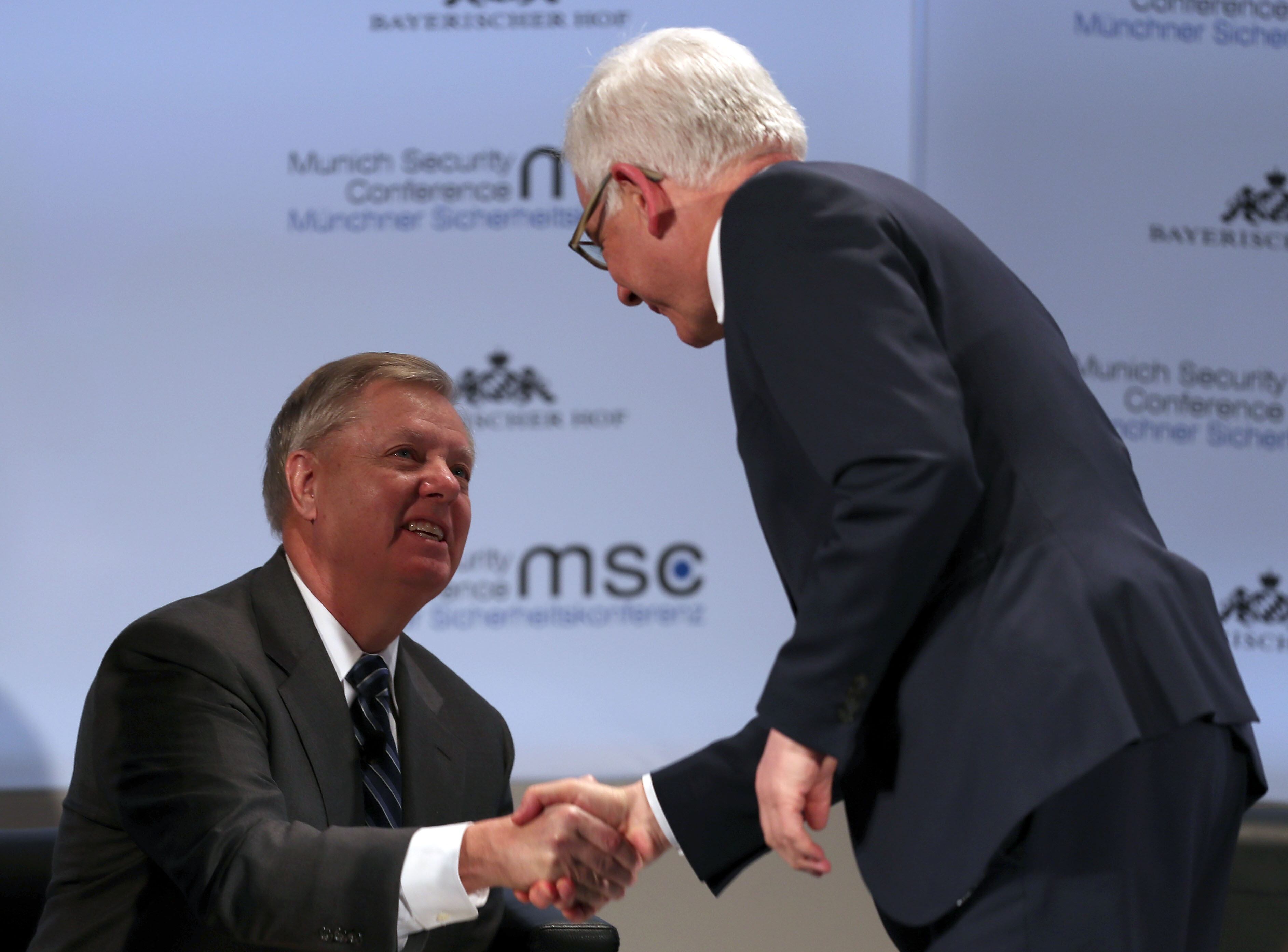MUNICH — Former Energy Secretary Ernest Moniz, said Saturday the U.S. has a path to salvage the tattered Intermediate-Range Nuclear Forces Treaty by agreeing to mutual inspections with Russia.
“Inspections are key to everything,” Moniz, a critic of President Donald Trump’s decision to withdraw from the decades old INF Treaty, said on the sidelines of the Munich Security Conference. He was the energy secretary from 2013-2017, under President Barack Obama.
“Frankly, the Russians I’ve spoken with said, ‘All we have to do is have mutual inspections,' because they also have an issue, with Aegis Ashore and its programmability for treaty-violating missiles,” Moniz said.
Amid fears Russia and America’s exit from the 1987 pact could result in a new arms race in Europe, European allies are seeking to bring Russia back in line before a deadline in six months. The puzzle for leaders and experts at the conference is how to accomplish it.
The U.S. announced weeks ago that it was retreating from the pact, reacting to what U.S. and European leaders believe is a years-long history of Russian violations. Moscow in turn also announced it would no longer be bound by it.
RELATED

The treaty prohibits the fielding of short-range and intermediate-range missiles in Europe.
To be clear, the path Moniz recommends is a steep one, as the trust required for mutual inspections is in short supply. Moscow and Washington have been trading accusations over who is breaking the treaty.
The U.S. claims Russia’s 9M729 nuclear-capable cruise missiles are in breach of the treaty’s terms, while Moscow claims the Mk-41 launcher used by the Aegis Ashore missile defense facility in Romania can hold and launch offensive cruise missiles of intermediate range in addition to the Mk-41’s stated purpose of containing and launching SM-3 missile interceptors.
U.S. officials have countered that the Mk-41 launcher used in Romania, and soon to be deployed at an Aegis Ashore site in Poland, has not been tested with a ground-launched missile, according to a Brookings analysis. They argue that is why it is not a prohibited intermediate-range missile launcher.
The Arms Control Association proposed earlier this month that Washington and Moscow exchange site visits and both agree to make modifications in such a way that Russia can avoid having to acknowledge its original violation of the treaty.
Moniz, who negotiated the landmark Iran nuclear deal, and former Senate Armed Services Committee chairman Sam Nunn, D-Ga., published an opinion piece earlier this month that argues the two superpowers are “sleepwalking toward disaster," and calls for Congress to take the lead. The two co-chair the Nuclear Threat Initiative.
While Moniz agreed Russia was out of compliance, he said Saturday the U.S. made strategic errors when it didn’t work within the treaty and left allies out of the decision—which is “exacerbating the strains we are putting on the Euro-Atlantic alliances.”
The Trump administration has also said China must also be a party to the treaty, and on Saturday German Chancellor Angela Merkel said she wants Beijing to join talks to save INF.
Moniz said the U.S. and Russia must come back into compliance before China can be wrangled because its issues are different.
“The INF was put in place for Euro-Atlantic issues, and that should be preserved, and then the issues with China can be discussed longer-term with China,” Moniz said. “I’m not arguing what the outcome would be or the goal, but it’s a large part of their force structure.”
Moniz acknowledged that would make it harder to persuade Beijing.
“What are the objectives and how do you answer them? It probably is not a simple-minded INF Treaty, but bringing them back into an appropriate regime, which is stabilizing,” Moniz said. “It’s all about stability, and we feel the Russian, and now American, actions go the opposite way.”
Joe Gould was the senior Pentagon reporter for Defense News, covering the intersection of national security policy, politics and the defense industry. He had previously served as Congress reporter.







